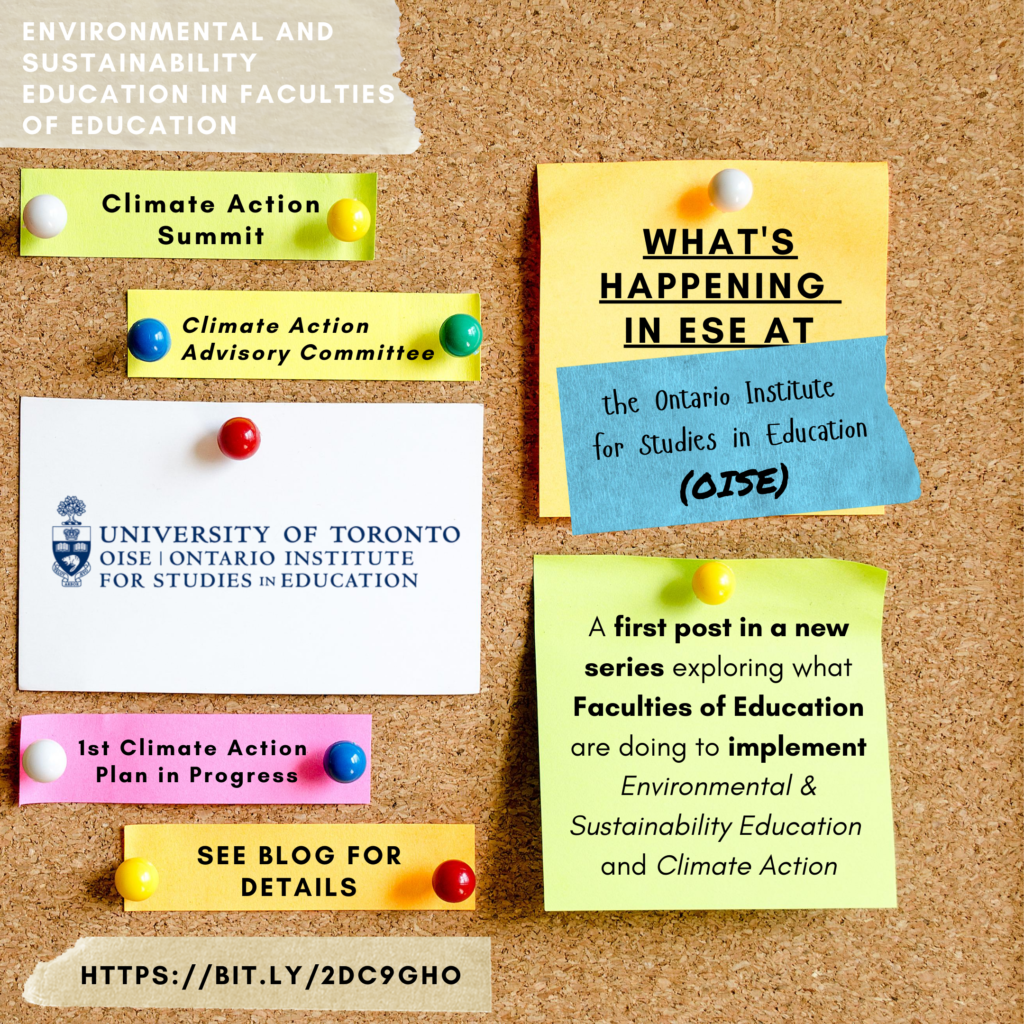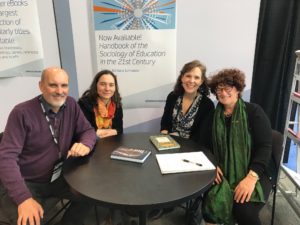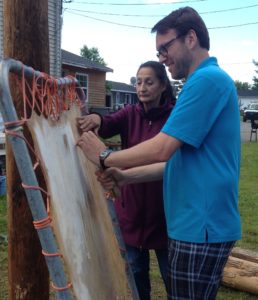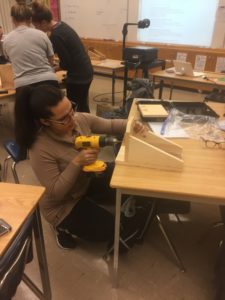Special Guest Author post by Dr. Ellen Field
Photos courtesy of LSF/LU
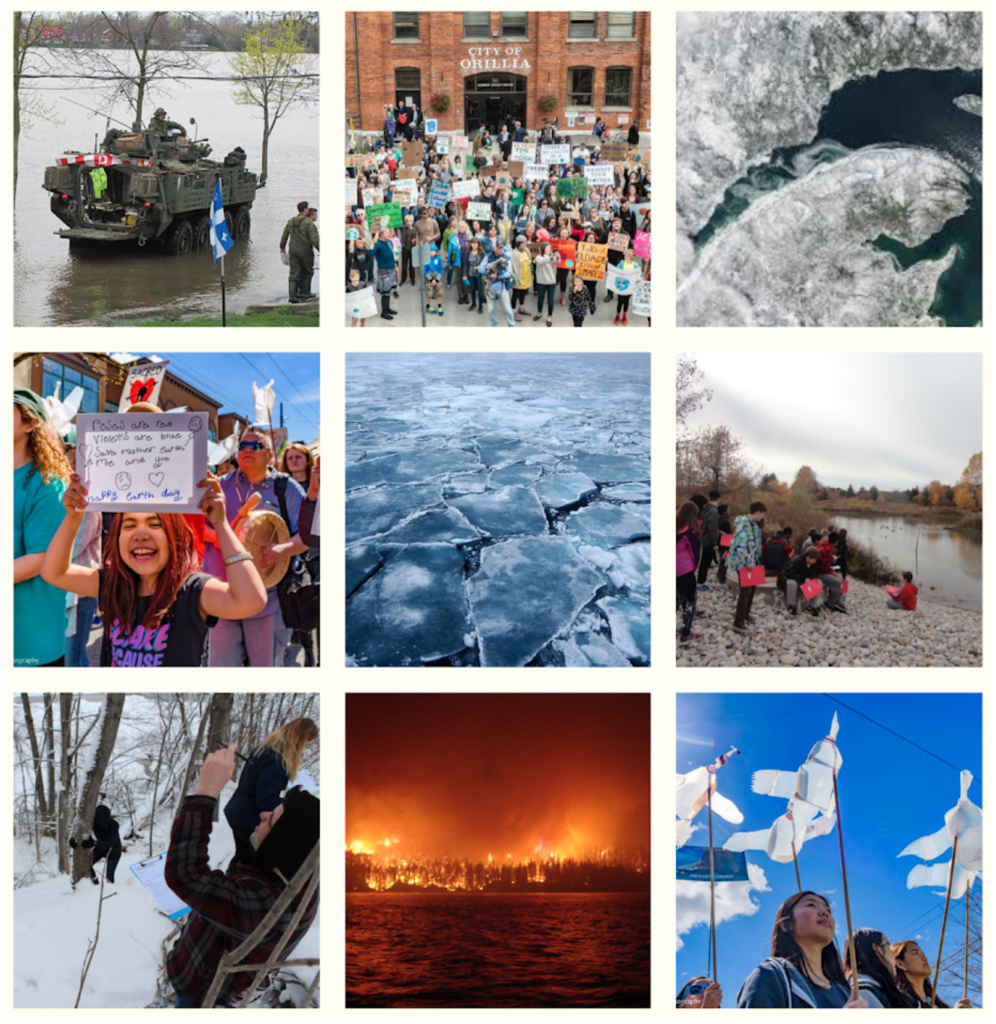
A recent national climate change education study led by Dr. Ellen Field from Lakehead University and Learning for a Sustainable Future establishes benchmarks of Canadians’ understanding of climate change, their perspectives on climate change impacts and risks, and views on the role of schools and climate change education.
The study surveyed 3,196 Canadians including 1,231 teachers, 571 parents, 486 students in grades 7 – 12, and 908 respondents from the general public. The study also provides the first comprehensive snapshot of climate change education practices across Canada.
The report, Canada, Climate Change, and Education: Opportunities for Public and Formal Education provides the national methodology and data and is publicly available. Alongside the national report, regional reports have been written for the Atlantic region, Ontario, and Manitoba, with others to follow. For each region, a knowledge mobilization session is coordinated in which policy makers and educational practitioners review data for the region and collaborate on sector specific climate change education action plans (these plans are publicly available: http://lsf-lst.ca/en/cc-survey).
Here are some key findings from the national data focused on Canadians’ perspectives and knowledge:
- 79% of Canadians are concerned about the impacts of climate change and 78% believe there are risks to people in Canada
- 85% of Canadians are certain that climate change is happening
- 43% of Canadians failed a basic climate science test
- There is a gap between perceptions and awareness: 51% of Canadians feel they are well-informed about climate change, only 14% correctly answered 8-10 basic climate science questions
- Only 30% of Canadians think that new technologies will solve the problem without individuals having to make big changes.
- 57% of Canadians believe their actions have an impact on climate change and 79% indicated that, while personal actions are important, systemic change is needed to address climate change.
Here are some key findings focused on climate change education and schools:
- 65% of Canadians and 79% of teachers think the education system should be doing more to educate young people about climate change.
- Only ⅓ of closed-sample teachers reported teaching any climate change. Of teachers who do integrate climate change content, most teach 1-10 hours of instruction per year or semester.
- Only 32% of closed-sample teachers feel they have the knowledge and skills to teach about climate change. Educators say they need professional development, classroom resources, current information on climate science, and curriculum policy.
- While climate change is predominantly taught in science and social studies classes, when it is taught, 75% of closed-sample teachers and 81% of open-sample teachers believe it is the role of all teachers.
Youth as an imperative climate audience
Within the report, we chose to apply a ladder of engagement (EcoAnalytics, 2016) to the different respondent groups (teachers, students, parents, members of the general public), to help policy makers, administrators, educators, and non-profit groups have a better understanding of how Canadians perceive and engage with climate change at a broad level. The groups are analyzed according to four audiences:
Empowered: agree climate change is happening and do think it’s caused by humans AND indicated that there are things we can do to change it.
Aware – agree climate change is happening and do think it’s caused by humans AND indicated that there is nothing that we can do to change it.
Sceptics – agree climate change is happening and do not think it’s caused by humans OR, neither agree nor disagree that climate change is happening
Dismissives – disagree that climate change is happening
National – Ladder of Engagement
n=3196 (Educator OS = 1120, Educator CS = 111, Parent CS = 571, Student CS= 486, General public = 908)
Looking at the data, 46% of students in grades 7 – 12 are categorized as Aware. These students understand that climate change is happening and that it is caused by humans but do not believe that human efforts in mitigation or adaptation will be effective. This is concerning when considering how this mindset may affect youth in terms of how they frame their future quality of life, opportunities, or possibilities. This survey provides the first benchmark of grade 7 – 12 students’ perspectives on climate change in Canada. Previously, EcoAnalytics (2016) identified youth age 18 – 34 as the largest Aware group and therefore an important group to target with education programs to shift into the Empowered segment of the ladder of engagement.
In this critical moment, we need to not only follow through on our policy commitments but work to enact systemic change to address the crisis at hand.
For more information, click the buttons below:
A project of:
Thank you to Dr. Field, LSF and LU for sharing these exciting developments on Ecosphere.
Tell us your thoughts: should our education system be doing more to teach young people about climate change? What’s happening in your school, board, university or community to embed climate action? Share in the comments here or on Instagram by clicking on the post included below.


